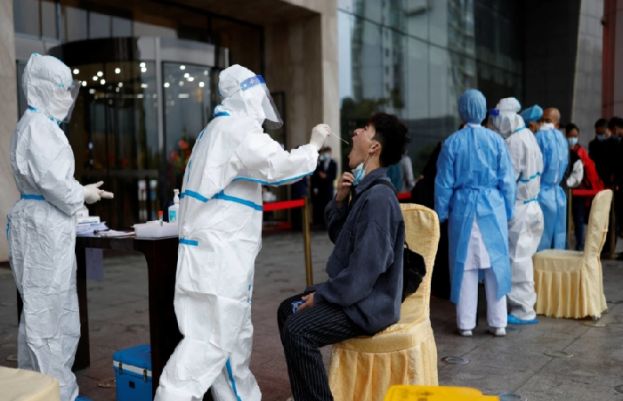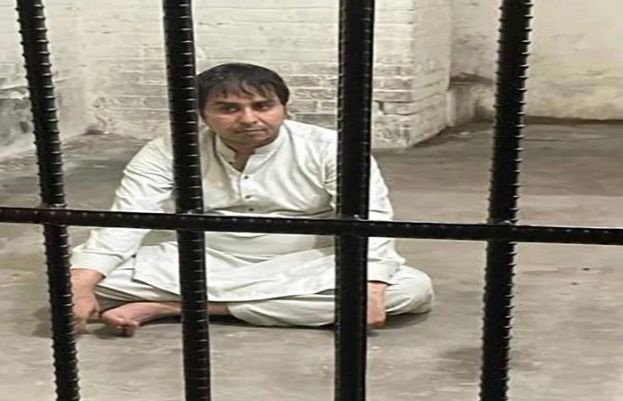As the International Monetary Fund (IMF) completely rejected the proposed tax relief in the Personal Income Tax (PIT) to the tune of Rs47 billion, the government is left with no option but to consider making changes to the proposal.
While the Federal Board of Revenue (FBR) has given the relief to the salaried class earning up to 1.2 million rupees per annum, a media outlet qouted top official sources as saying that the IMF conveyed its clear reservations regarding the proposed rate for the PIT.
To provide relief to the urban middle class, the Fund wants that the relief be restricted only to people with up to Rs0.2 million earning per month and that tax rates should be jacked up later in other slabs.
Contrary to this broader agreement with the IMF during the sixth review under the PTI-led government which was placed as a structural benchmark under the Fund agreement, the FBR proposed relief to those who are earning up to one million rupees per month in salary in the budget for 2022-23 through Finance Bill 2022 in Parliament.
These proposed PIT rates, if not changed, could turn into a major blockade to strike a staff-level agreement with the IMF.
The IMF wanted increased revenue collection up to Rs125 billion by placing PIT in a progressive format but the government took steps another way round and made it impossible for both sides to strike a staff-level agreement under the $6 billion Extended Fund Facility with the existing proposal of PIT.
The Finance Bill 2022 proposed that the taxable ceiling up to Rs1.2 million will pay just Rs100 tax. Earlier, the salary earner up to Rs800,000 on a per annum basis would have to pay Rs10,000, up to Rs1.2 million Rs30,000 and up to Rs2 million Rs120,000. Under the proposed rate, the salary earner of Rs2 million per annum will have to pay only Rs56,000.
The salary earner up to Rs3 million used to pay Rs282,000 on an annual basis but now the proposed rate of the tax liability is reduced to Rs159,000.
The salary earner up to Rs4 million had to pay income tax of Rs470,000 but now under the proposed rate, the tax liability is reduced to Rs304,000. The salary earner up to Rs5 million had to pay a tax amount of Rs670,000 but under the proposed rate, the tax liability was reduced to Rs479,000.
The tax rates proposed under the Finance Bill 2022 continued providing relief up to Rs one million salary earner who had to pay Rs1.845 million tax amount but now under the proposed Finance Bill 2022, the tax liability was reduced to Rs1.554 million for salary income up to Rs one million per month.
In the remaining slabs up to Rs20 million, Rs40 million, Rs60 million, and Rs80 million, the proposed tax rates were revised upward.
When contacted, former Director-General Economic Reform Unit (ERU) Ministry of Finance, Dr Khaqan Najeeb, said the only way out of the stalemate with the IMF would be bringing changes to the proposed slabs that would be a pre-requisite to strike an agreement with the IMF. He explained the changes that the relief should be given to Rs0.2 million per month.
In the Finance Bill 2022, the FBR increased the limit of taxable ceiling from Rs600,000 to Rs1,200,000, and the number of slabs was reduced from 12 to 7 under the Personal Income Tax regime.
According to new slabs introduced for the salaried class, where taxable income does not exceed Rs600,000, there will be zero tax. Where the taxable income exceeds Rs600,000 but does not exceed Rs1,200,000, there will be a tax of just Rs100.
Where the taxable income exceeds Rs1,20,000 but does not exceed Rs2,400,000, there will be a tax of 7% of the amount exceeding Rs1,200,000.
Where the taxable income exceeds Rs2,400,000 but does not exceed Rs3,600,000, there will be Rs84,000 plus 12.5% of the amount exceeding Rs2,400,000 on a per annum basis. Where the taxable income exceeds Rs3,600,000 but does not exceed Rs6,000,000, the FBR will impose a tax of Rs234,000 plus 17.5% of the amount exceeding Rs3,600,000.
Where the taxable income exceeds Rs6,000,000 but does not exceed Rs12,000,000, the FBR will deduct Rs654,000 plus 22.5% of the amount exceeding Rs6,000,000. Where the taxable income exceeds Rs12,000,000, the FBR will charge a tax amount of Rs2,004,000 plus 32.5% of the amount exceeding Rs12,000,000 on a per annum basis.






